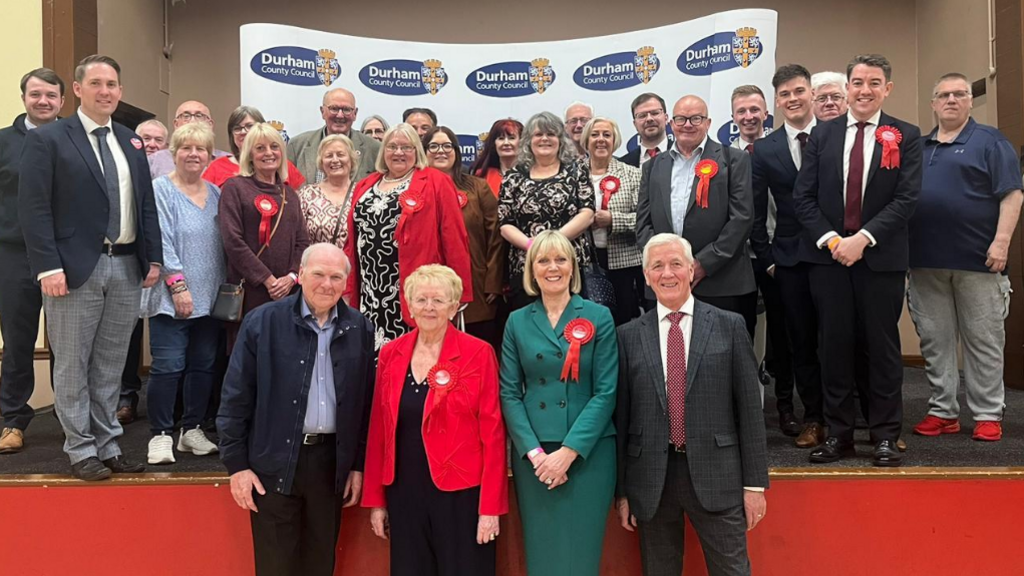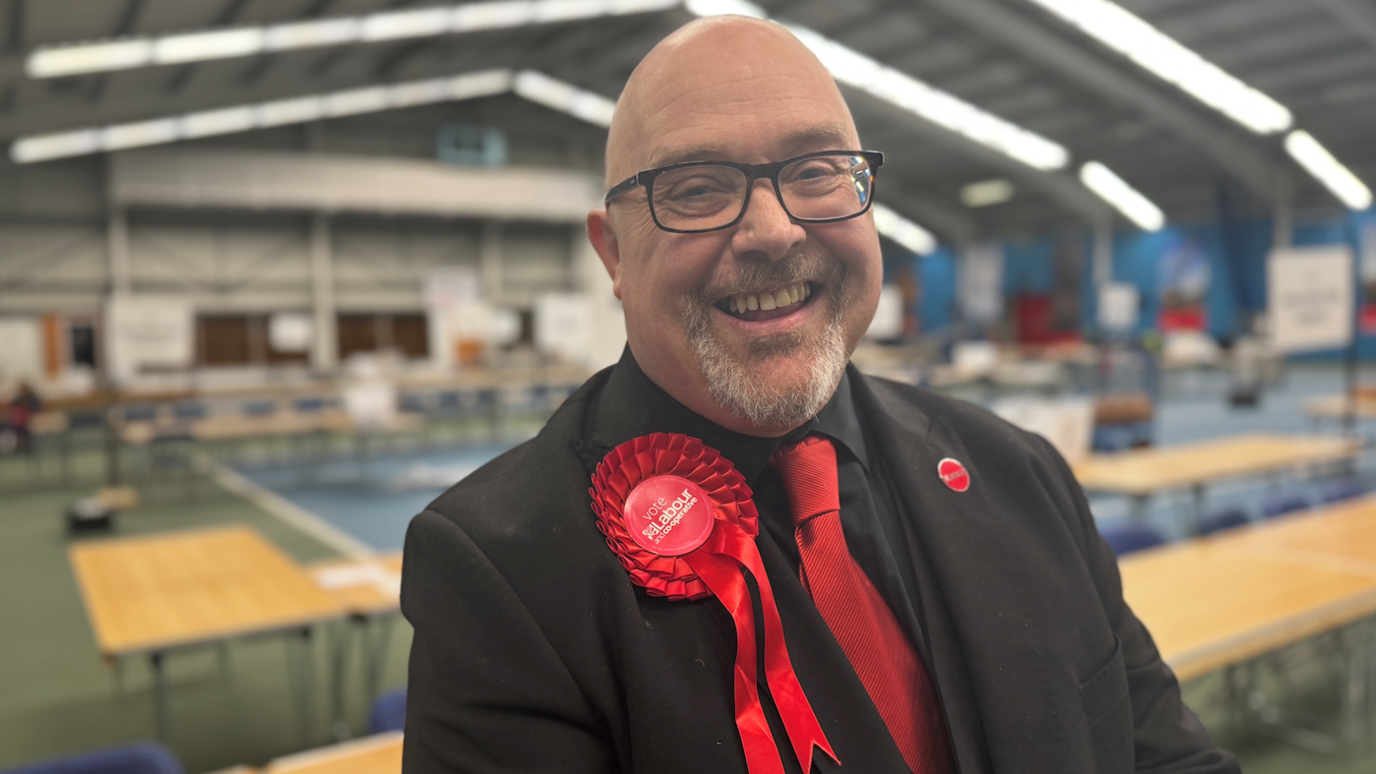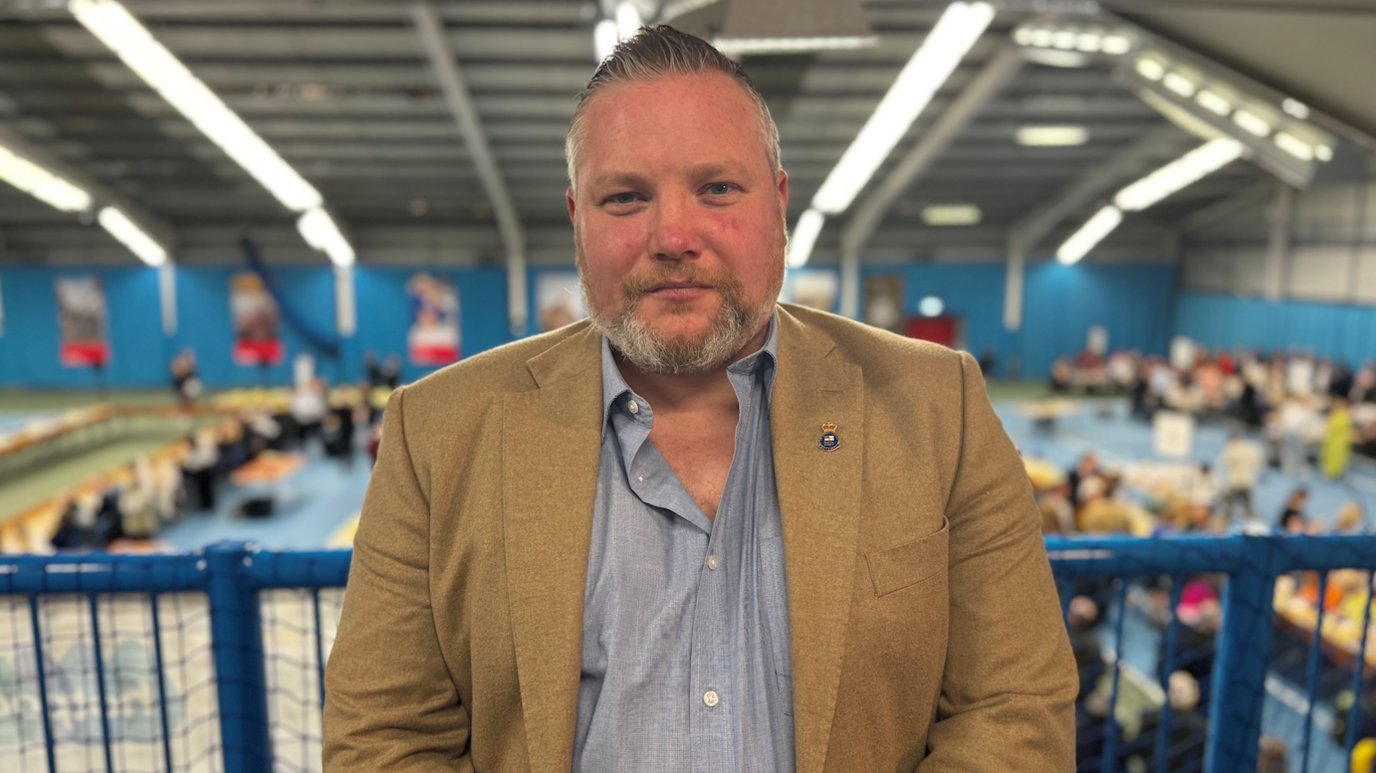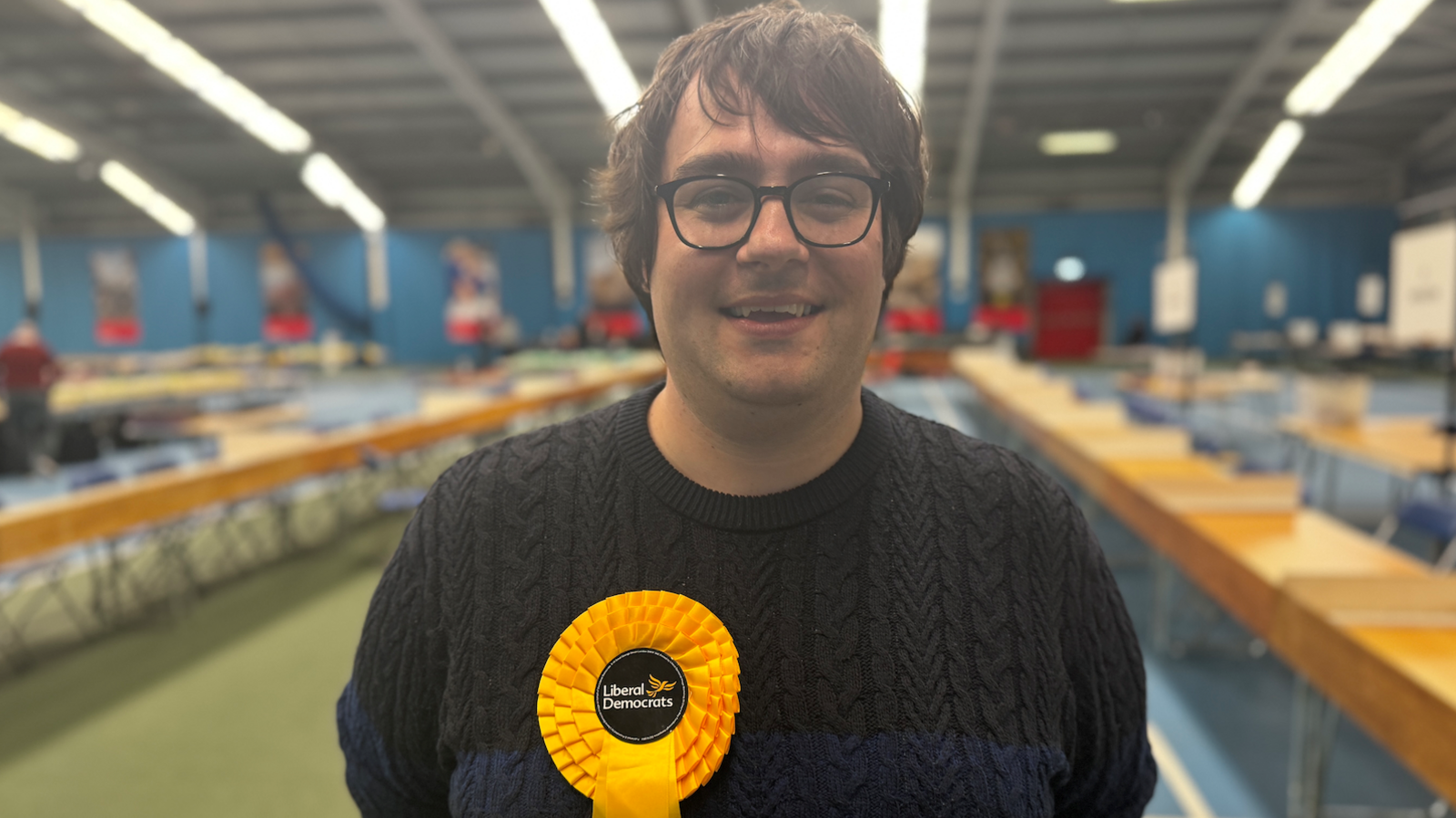Labour holds Sunderland Council and Durham PCC

Labour's Joy Allen (in green) was re-elected Police and Crime Commissioner for Durham
- Published
Labour has kept control of Sunderland City Council after defending all its seats and winning six others.
Thursday's election saw the Conservatives lose their status as the official opposition on the council to the Liberal Democrats.
Labour's Joy Allen also retained her role as Durham Police and Crime Commissioner (PCC) with a much increased majority.
Ms Allen said she was "overwhelmed" with the public’s support.

Sunderland Labour leader Graeme Miller said it was "great night for the Labour Party"
Ms Allen received 66,752 votes with Conservative Robert Potts second on 37,773. Nigel Boddy of the Liberal Democrats received 14,678 votes.
“I’m absolutely delighted and honoured to continue in this role," she said.
Thursday's election saw the Conservatives lose their status as the official opposition on the council to the Liberal Democrats.
The Conservatives lost three out of six seats on Wearside to Labour having previously lost two seats through the defection of councillors.
Sunderland Conservative leader Antony Mullen said the result was worrying "because it means this could be replicated at a general election".
Mr Mullen said Reform UK’s decision to stand in all 25 available seats in the city had “split the vote” and helped Labour.
He said the party would continue to be an "effective opposition" and would be “back on the up” when the city faces the next local election in 2026.
“If people vote Reform, they aren’t going to get Reform, they’re going to get a radically left-wing option to what they think they’re voting for,” he said.

Sunderland Conservatives leader Anthony Mullen described the result as "worrying"
However, he believed it was promising that, despite losing the majority of its contested seats, in some cases the number of votes in favour of Conservative candidates had gone up.
“[We] won’t change the kind of work we do, it won’t change how we serve the people that we have been elected to represent, we will continue to do the job well.”

Paul Donaghy said results showed Reform UK would "only go up"
Reform's Paul Donaghy, who himself lost his Washington South seat to Labour, said the party had succeeded in making its mark in Sunderland, gaining second place across several wards, adding it indicated the party "will only go up".
The Liberal Democrats are, again, the main party of opposition after losing just one seat but holding four.
It had held that role until September 2023 when two of its councillors had defected to Labour.

The Liberal Democrats are the official council opposition once again
Paul Edgeworth, its leader, said the result meant "like Gateshead and Newcastle, it's a Labour versus Lib Dem race in Sunderland".
Sunderland's Labour leader Graeme Miller told the BBC he felt "justified" and it was a "great night for the Labour Party" who he believes, "will be in government" by the end of the year.
He added the Reform Party was "nowhere near challenging Labour".
Additional reporting by Bill Edgar from the Local Democracy Reporting Service
Follow BBC Sunderland on X (formerly Twitter), external, Facebook, external and Instagram, external. Send your story ideas to northeastandcumbria@bbc.co.uk.